Cinnamon is the brown bark of the cinnamon tree, which is dried, rolled into a shape known as a cinnamon stick. Cinnamon can be found in the form of cinnamon sticks or powder.
There are about a hundred varieties of Cinnamonum verum (the scientific name for cinnamon), but Cinnamonum zeylanicum (Ceylon cinnamon) and Cinnamomun aromaticum (Chinese cinnamon) are the leading most consumed varieties. Ceylon cinnamon is also known as "true cinnamon", while Chinese cinnamon is known as "cassia". Although both species have relatively similar characteristics and are aromatic, sweet and warm in taste, Ceylon Cinnamon's aroma is more refined and strong.
Cinnamon is one of the oldest known spices. It is mentioned in the Bible and was used in ancient Egypt not only as a drink, for flavor and in medicine, but also as an embalming agent. It is considered even more valuable than gold. Around this time, cinnamon also became popular in China. Subsequently, cinnamon became one of the most popular spices in medieval Europe as well. Because of its demand, cinnamon was one of the first regularly traded commodities between the Middle East and Europe.
Ceylon cinnamon is produced in Sri Lanka, India, Madagascar, Brazil and the Caribbean, while cassia is mainly produced in China, Vietnam and Indonesia.
Cinnamon content
Cinnamon contains a large amount of essential oils, cinnamic aldehyde, resin, starch, eugenol and tannins. Cinnamon is an excellent source of manganese and a very good source of dietary fiber, calcium and iron. Two teaspoons of cinnamon contain 11.84 calories and 0.16 grams of fat.
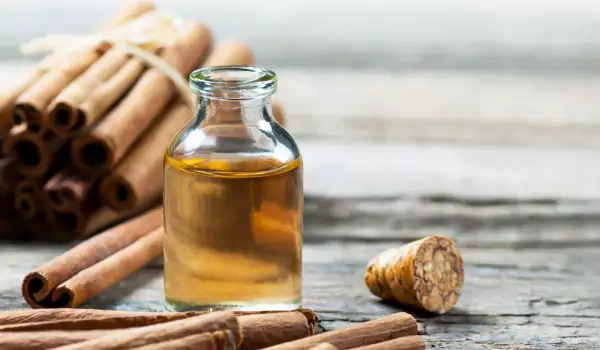
Selection and storage of cinnamon
Cinnamon can be bought in the form of cinnamon sticks or in powdered form. Cinnamon sticks can be stored longer than cinnamon powder, but it is much more strongly flavored. The quality of cinnamon is indicated by its smell, which should be sweet, strong and clean. Cinnamon must be stored in a tightly closed glass container in a cool, dark and dry place. Cinnamon powder lasts about six months, cinnamon sticks stay fresh even for more than a year. A good way to increase the shelf life of cinnamon is to store it in the refrigerator.
Culinary use of cinnamon
Cinnamon has a number of culinary uses - it is used in many sponge cakes with eggs, cakes with milk, honey cakes, almond cakes, gingerbread, soft biscuits, butter biscuits, tea biscuits, white cakes, milk and chocolate drinks. It is used as an ingredient in fruit drinks, vegan smoothies, dietary drinks, mulled wine, honey and herbal tea. One of the most famous uses of cinnamon is in the favorite of many of us - rice pudding. But it is also used in egg creams, dairy creams, homemade ice creams. Cinnamon is one of the healthy substitutes for sugar, so if you want to live a healthier life, start spicing up your cup of coffee with a spoonful of cinnamon.
Cinnamon sticks are a sophisticated accessory with which you can serve sophisticated coffee to your guests. Cinnamon stick placed in the sugar bowl releases a very pleasant aroma to both white and brown sugar. Arrange the festive Christmas table with cinnamon sticks - in addition to aroma, they will also add a very cozy look.
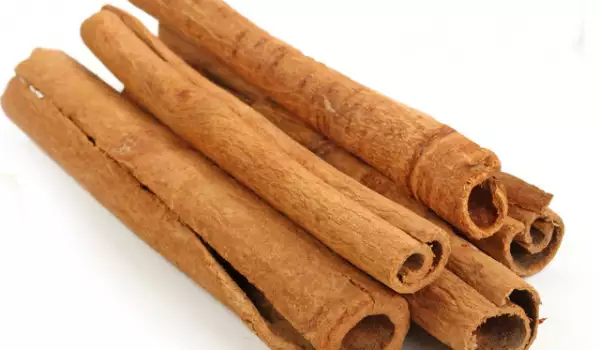
Benefits of cinnamon
Cinnamon's unique healing properties come from three main types of essential oils contained in its bark. These oils contain active ingredients called cinnamaldehyde, cinnamyl acetate, cinnamyl and alcohol, as well as a wide range of other volatile substances. In general, the health benefits of cinnamon are:
- Anticoagulant action. Cinnamaldehyde has been well studied for its effects on blood platelets. It helps prevent unwanted clotting of blood platelets.
Cinnamon's ability to reduce the release of arachidonic acid from cell membranes puts it in the category of anti-inflammatory foods.
- Antimicrobial action. Cinnamon has the ability to help stop the growth of both bacteria and fungi, including the often problematic Candida yeast.
- Blood sugar control. Seasoning a high-carbohydrate meal with cinnamon can help lower blood sugar. Cinnamon slows the rate at which the stomach empties after a meal, resulting in less of a rise in blood sugar after a meal. For this reason, cinnamon is a very valuable spice in the fight against type 2 diabetes.
- Cinnamon smell increases brain activity;
- The calcium and fiber content in cinnamon improves colon health and provides protection against heart disease;
- Cinnamon is a traditional warming agent.
In addition to the active ingredients in essential oils and nutritional ingredients, cinnamon is also known in medicine and especially in Chinese medicine with its warming qualities. For this reason, cinnamon is used as a cold or flu aid and is very warming, especially when mixed with tea.
For women who lose a lot of blood during menstruation, cinnamon is very useful because it stops heavy bleeding.
Cinnamon is said to prevent cancer if consumed daily in a mixture of water and honey.
Cinnamon can be used by people with diabetes to lower blood sugar. However, it is desirable to do this under the supervision of a doctor or a specialist in proper nutrition.
Since cinnamon increases levels of progesterone and testosterone, respectively, cinnamon can be used as a cure for infertility.
Studies show that daily consumption of cinnamon will reduce the chances of developing neurological diseases such as Parkinson's or Alzheimer's.
Cinnamon will help the proper functioning of the brain.
It can also be used to improve breathing as it has an antibacterial role.
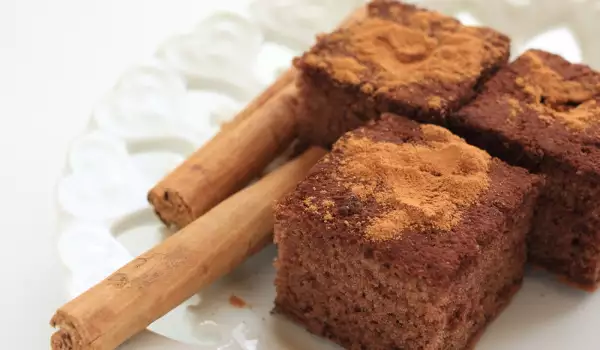
Beautification with cinnamon
1. Cinnamon will rid you of acne, pimples and rosacea because it dries out the affected areas and helps to renew them. Make a paste of honey and cinnamon and apply it on the affected areas and let it dry overnight, repeat the process until the skin problems are cleared.
2. If you have dry skin, then you can use cinnamon for exfoliation. You can combine cinnamon with sea salt, olive oil or almond oil.
3. Cinnamon, through its antibacterial role, will help you regain your beautiful skin color.
4. Through its contribution to tissue revitalization, cinnamon will help you get rid of the first wrinkles or fine expression lines. Apply a mixture of honey, cinnamon and oil on the affected areas. This way you can also get rid of eczema.
5. Cinnamon has antibacterial properties, so it prevents infections and helps you get rid of scars and blemishes on your skin.
6. Cinnamon will clean the scalp, help exfoliate and get rid of dandruff that also affects the roots of your hair.
7. A natural way to lighten hair is to use a cinnamon mixture when washing the head. This way, your hair will lighten without using dye that will make your hair brittle.
8. Cinnamon has been used since ancient times to strengthen hair and restore its elasticity. You can make a cinnamon hair mask. You need an egg, olive oil, a teaspoon of honey and a teaspoon of cinnamon powder. Apply and let it work, then you can wash with regular shampoo.
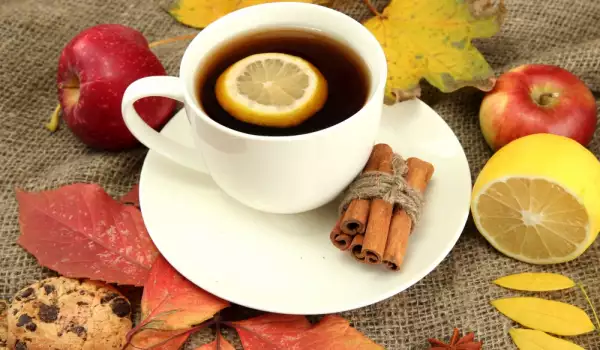
Harms from cinnamon
Cinnamon is not an allergenic food and is not known to contain measurable amounts of goitrogens, oxalates, and purines. However, in some cases it can cause an allergic reaction, and in some people an increase in appetite is observed, which is a prerequisite for the accumulation of extra pounds. Pregnant women should be careful with the consumption of cinnamon, because in high doses the spice becomes a uterine stimulant.
Lose weight with cinnamon
Cinnamon weight loss is perhaps one of the most successful and at the same time healthy tactics for shedding extra pounds. Nutritionists recommend that the intake of cinnamon is accurate, which means - in the morning on an empty stomach and in the evening before going to bed to drink one cup of cinnamon tea. The second very important rule is to not eat for at least an hour after drinking the cinnamon. Make cinnamon tea by mixing half a teaspoon of cinnamon and one teaspoon of honey, then steep them in a cup of hot water.
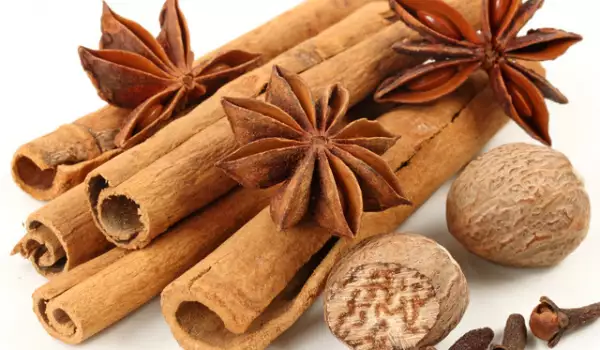
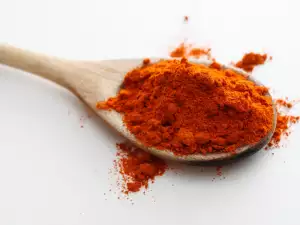
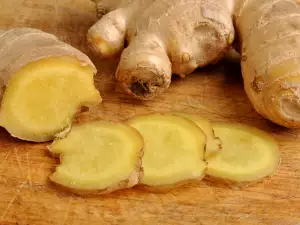

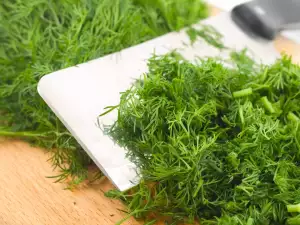
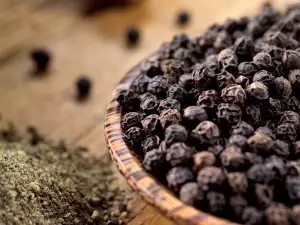

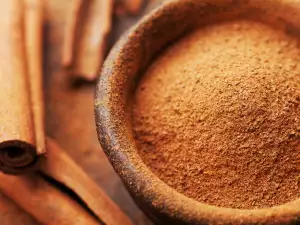
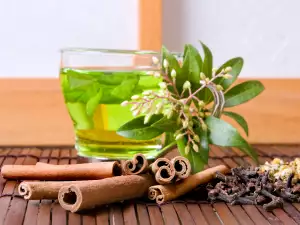

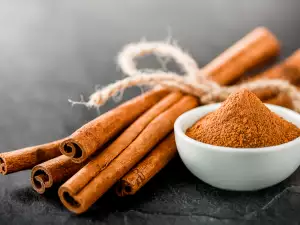
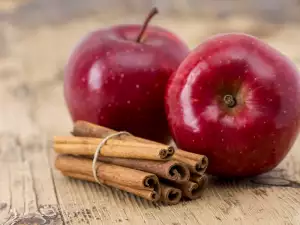


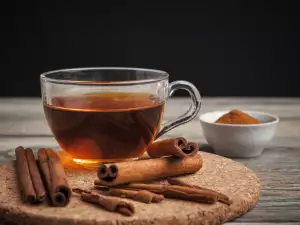
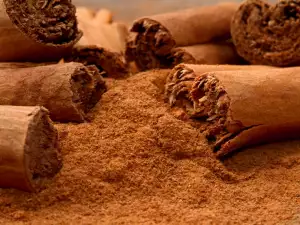




Comments